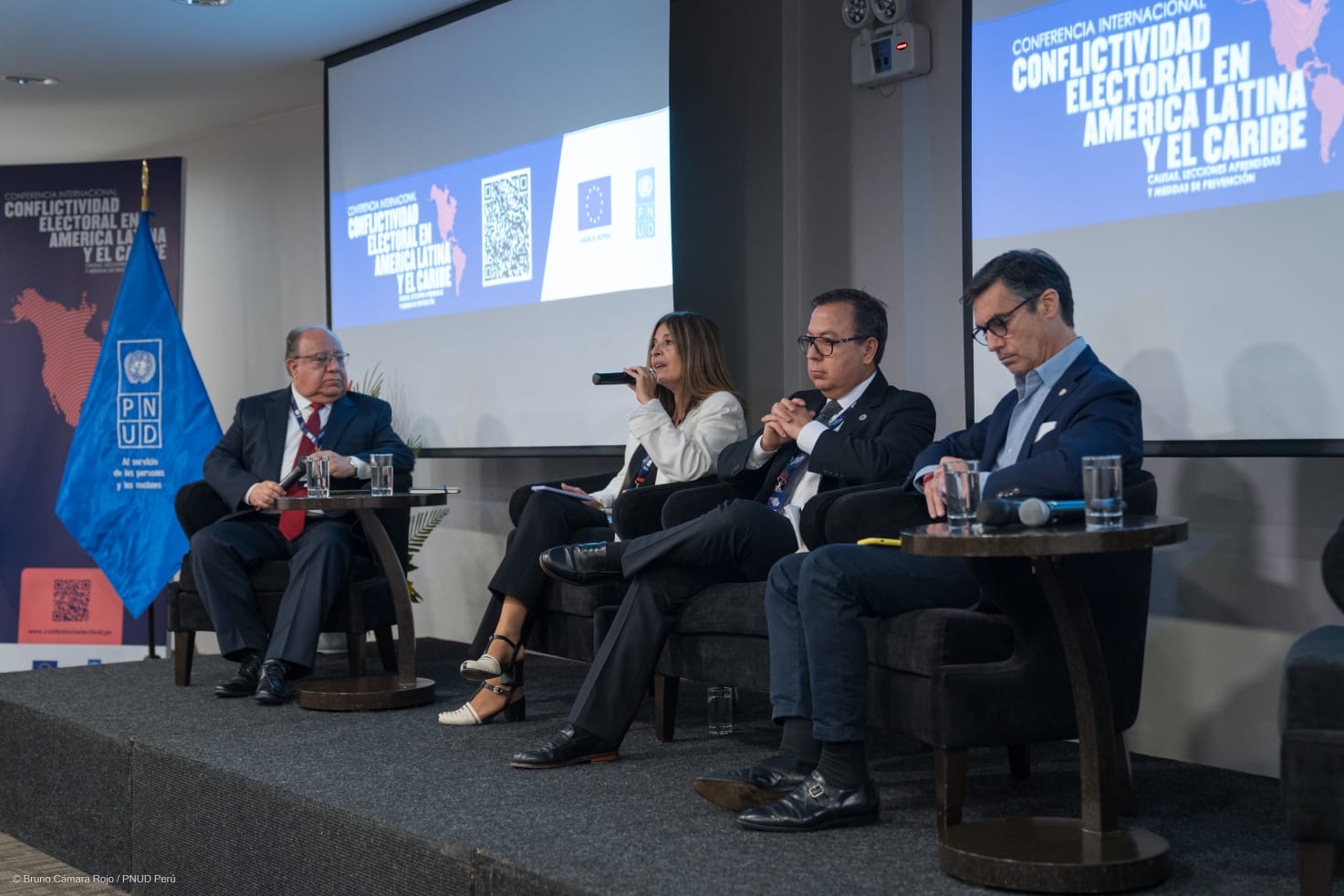“Twenty-two years ago, when International IDEA was founded, there was no field of electoral administration… Today, there is a thriving and bustling community of professionals who learn from one another, who have access to cutting edge research and professional resources from around the world, and who have insights into how other countries tackle similar problems.
Search
Region
Country
Type
This year, the ACE Electoral Knowledge Network celebrates 20 years as the world’s largest online source of electoral knowledge, promoting credible and transparent electoral processes around the world.
International IDEA’s Annual Review of Constitution-Building Processes provides a retrospective account of constitutional transitions around the world, the issues that drive them, and their implications for national and international politics.
National democratic elections are unquestionably expensive. This fact is beyond dispute.
Last month's Paradise Papers revelations have raised many questions. Where is Prime Minister Justine Trudeau’s long-time collaborator, Stephen Bronfman, getting his money from? Why did Prince Charles not disclose his business interests in an enterprise apparently benefiting from his environmental lobbying activities?
Up until 2017, analysis and commentary on democracy’s decline pervaded the news. The Economist Intelligence Unit’s Democracy Index report pointed out that in 2016, 70 democracies were in decline. In the book, The Retreat of Western Liberalism, Financial Times columnist, Edward Luce, argues that “Western democracy is not yet dead, but it is far closer to collapse than we may wish to believe”.
As we are nearing the end of 2017, it is an opportune time to look back and reflect on the year that has just gone by.
Peru, represented by the Ambassador of Peru to Sweden, José Beraún Aranibar, handed over the Chairship of International IDEA to Namibia, represented by Deputy Minister of International Relations and Cooperation, Maureen Magreth Hinda during International IDEA's Council of Member States meeting on 6 December 2017, in the presence of Yves Leterme, Secretary-General of International IDEA.
The Building Resources in Democracy Governance and Election (BRIDGE) project recently launched its version 3 Voter and Civic Education module. This highly interactive professional development module provides election management bodies (EMBs), educational institutions and civil society organizations (CSOs) with a framework and methodology to develop effective, focused and cost-effective voter and civic education programmes.
Disclaimer: Views expressed in this commentary are those of the staff member. This commentary is independent of specific national or political interests. Views expressed do not necessarily represent the institutional position of International IDEA, its Board of Advisers or its Council of Member States.
In countries transitioning from war to peace, elections are important instruments in facilitating broader democratic consolidation and state-building efforts. However, experts caution that transitional elections should not be taken for granted and that their timing and sequencing is critical.
18 December 2017 | BERLIN—In today’s globalized world, cultural diplomacy has become an increasingly important tool to support intercultural relations, global peace and stability. On 19–22 December, the Institute of Cultural Diplomacy (ICD) will host its 2017 Annual Conference in Berlin, with the theme “Promoting Global Collaboration, Unity and Peace through Cultural Diplomacy”.
This exploratory study of constitutional jurisprudence on gender equality and women’s empowerment reveals a series of important findings regarding the current state of lived realities for women living under constitutions which purportedly provide for equality between men and women and prohibit discrimination based on gender.
On 2–3 November 2017, the Election Commission of India (ECI) and the Indian International Institute of Democracy and Electoral Management (IIIDEM) organized a Building Resources in Democracy Governance and Elections (BRIDGE) showcase and implementation workshop in New Delhi with the support of International IDEA and the Australian Election Commission (AEC). The workshop marked the first BRIDGE event that the ECI and IIIDEM has implemented to date.
Disclaimer: Views expressed in this commentary are those of the staff member. This commentary is independent of specific national or political interests. Views expressed do not necessarily represent the institutional position of International IDEA, its Board of Advisers or its Council of Member States.
13 December 2017 | COLOMBO—The world has experienced continued and steep democratic progress, however this progress has slowed down over the past decade. Challenges and threats have emerged in specific countries and regions, according to the first edition of The Global State of Democracy publication from The International Institute for Democracy and Electoral Assistance (International IDEA).
Gender equality and the political empowerment of women are key elements for the consolidation of sustainable democracies worldwide.
Global and regional organizations play an important role in the development of legal and policy frameworks, as well as in the design of effective action plans to better support the advancement of the gender equality agenda at the global, regional and national levels.
On 20–21 November, senior practitioners and experts attended a workshop in Stockholm aimed at developing a new Building Resources for Democracy, Governance and Elections (BRIDGE) module on the financing and budgeting of elections.
On 20 November, International IDEA Secretary-General Yves Leterme attended the launch of International IDEA’s flagship publication, The Global State of Democracy: Exploring Democracy's Resilience in Lima, Peru, as part of a series of launches aorund the world.
On 30 November 2017, International IDEA Secretary-General Yves Leterme moderated a panel discussion at the Riksdag, the national parliament of Sweden, in Stockholm. Celebrating the 125th anniversary of the Riksdag’s membership of the Inter-Parliamentary Union (IPU), the panel focused on the future of cooperation between the United Nations, the IPU, and national parliaments.

